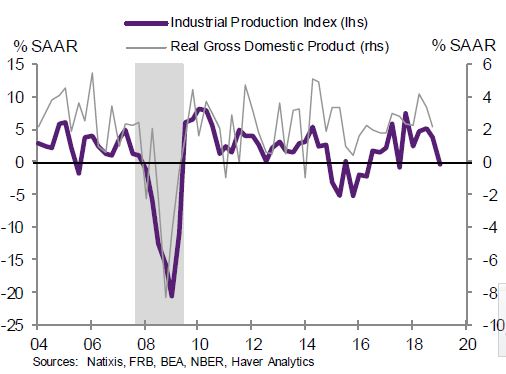Natixis economist Joseph LaVorgna said the Federal Reserve's industrial production index correlates very closely to GDP growth, and the correlation between its quarterly annualized changes and real GDP growth is around 70%.
"It correlates to GDP pretty well, and I did notice within the data that there was a big inventory build within the fourth quarter," said LaVorgna, the firm's chief economist for the Americas.

"It seems if there was a time that industrial production and GDP would match up well it would be at time when there's a relatively large inventory build," he said. "When you unwind inventory, you would expect to see production slow."
LaVorgna is forecasting 1% for first quarter GDP growth, reported April 26, but he said it could be even closer to flat. He added economists' consensus forecast is 2%.
"To me the production data suggests there's may more downside risk to Q1 than people currently believe," he said.
Goldman Sachs economists said they were upping their first quarter tracking forecast to 1.7% because they had been expecting even weaker industrial production.
"We still expect real GDP output in the first quarter to hit 1.5%, but much of the increase will come from a temporary build-up of inventories rather than factories producing more goods," noted Chris Rupkey, chief economist at MUFG.






